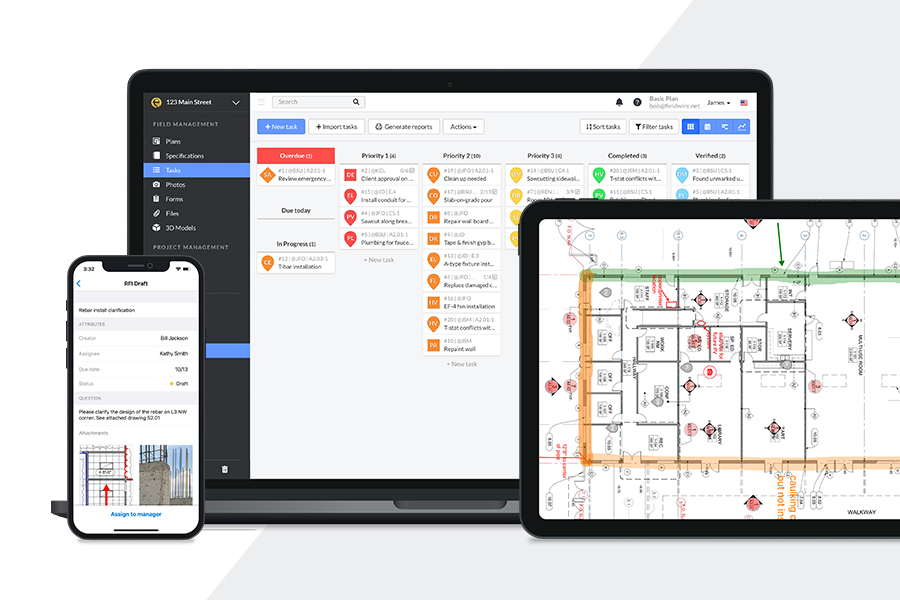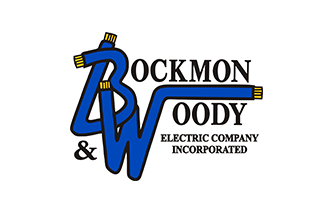Improving construction productivity with Fieldwire by Hilti

While most industries have made steady productivity gains over the past several decades, construction has consistently lagged. The complexity of projects, combined with limited adoption of digital technologies, has made it difficult for contractors to achieve the kind of efficiency seen in manufacturing or logistics. But the landscape is finally starting to shift. Thanks to growing investment in construction technology (ConTech), increased adoption of modular construction, and new innovations, like robotics, entering the field, the industry is now poised for meaningful gains.
A 2024 McKinsey study highlights the scale of the challenge. Despite growing demand, the industry continues to face a widening productivity gap. If this trend persists, McKinsey estimates that construction could leave up to $40 trillion in unrealized construction demand on the table over the next decades. Not because of a lack of work—but because contractors simply cannot meet demand due to ongoing labor shortages and inefficient processes that fail to leverage productivity-enhancing tools, software, or services.

From my own experience earlier in my career, I can appreciate why construction productivity is such a challenge. I spent time in the lean department at BMW, where optimizing processes in a highly controlled manufacturing environment was far more straightforward. In manufacturing, workers often perform repetitive tasks in stable conditions, allowing for fine-tuned process improvements. Construction, by contrast, operates in one of the most complex and uncontrolled environments imaginable. Contractors must coordinate teams across multiple jobsites, manage dozens of trades, and juggle a constant flow of materials, equipment, and tools. This complexity often results in fragmented collaboration, poor communication, and costly rework.
In fact, a study published by Engineering News-Record (ENR) shows that only about 30% of a craft worker’s day is spent on direct “wrench time”—the hands-on, value-adding work. The remaining 70% is consumed by material handling, setup, waiting for tools or instructions, and other indirect tasks. This stark reality makes it clear why productivity improvements represent such a massive opportunity for the industry.
This is where the ConTech sector has emerged to play a crucial role, offering solutions that help contractors streamline processes, improve coordination, and minimize downtime. Companies like Fieldwire by Hilti were founded to address these very challenges and help close the productivity gap on today’s jobsites.
Hilti’s digital push: How jobsite management software is changing construction
At Hilti, the realization was simple: while tools and services like fleet management remain critical, software had to become the third pillar of its offering to fully support customers and serve as a true productivity partner. That’s why Hilti acquired Fieldwire in 2021—to strengthen its software portfolio and offer contractors integrated solutions that combine hardware, software, and services. Together, these solutions can help minimize waste and downtime, while helping boost productivity at every stage of the project.

With the combination of jobsite management software, asset management, VDC, BIM, and prefab solutions, Hilti is playing a central role in driving the digital transformation of the construction industry. High-performing tools paired with Hilti’s fleet management program help ensure that contractors have the right equipment, in the right quantity, exactly when and where it's needed—keeping projects on schedule and teams productive.
A game changer for the industry: Jobsite management with Fieldwire
When Fieldwire was founded in 2013, it set out to solve one of the biggest challenges in construction technology: adoption. Both of Fieldwire’s founders came from the gaming industry and brought a simple but powerful idea with them—software needs to be intuitive and enjoyable to use. Like a great video game, the key to adoption is a product that field teams actually want to use. That philosophy has guided Fieldwire from the start, and remains the foundation of its product development today.
Built for the Field, Driven by Customer Feedback:
-
Over 70% of Fieldwire’s features are directly shaped by customer input.
-
Every feature is designed for ease of use, enabling fast adoption on-site and delivering unmatched mobile performance.
-
Dedicated support ensures customers can always speak directly with product experts via phone, email, or live chat, and learn through interactive training led by construction professionals.
Scaling faster with Hilti
While Fieldwire’s core approach hasn’t changed in over a decade, one thing has: scale. Since joining the Hilti Group, Fieldwire has been able to dramatically accelerate its product development. With Hilti’s financial backing and global reach, Fieldwire has quadrupled the speed of feature releases and updates, delivering new capabilities faster than ever while maintaining the same ease of use and high-touch customer support that have made it a trusted partner for thousands of contractors worldwide.
As part of Hilti, Fieldwire is helping to redefine what’s possible in jobsite management, closing the gap between the field and office, minimizing downtime, and enabling contractors to take full advantage of the digital tools that will shape the future of construction.
What’s next
While we continue to enhance Fieldwire’s core features to support field and project management, a significant part of our focus is now on expanding our ecosystem. We’re building more integrations with the software tools construction teams already rely on, making Fieldwire the central hub for jobsite operations that fits seamlessly into your existing tech stack.
We’re also investing heavily in bringing BIM to the field, giving teams easy access to 3D models directly on site to improve coordination and reduce delays. And with the rise of AI-powered tools, we’re developing new capabilities that will streamline workflows, simplify day-to-day activities, and unlock valuable insights into project performance, resource utilization, and bottlenecks—all based on real-time field data.
While construction may never have the level of control found in industries like automotive manufacturing, solutions like Fieldwire by Hilti offer construction teams a real opportunity to close the productivity gap. Now is the time for contractors to take advantage of these technologies and transform their businesses—building a more productive, efficient, and future-ready construction industry.




















